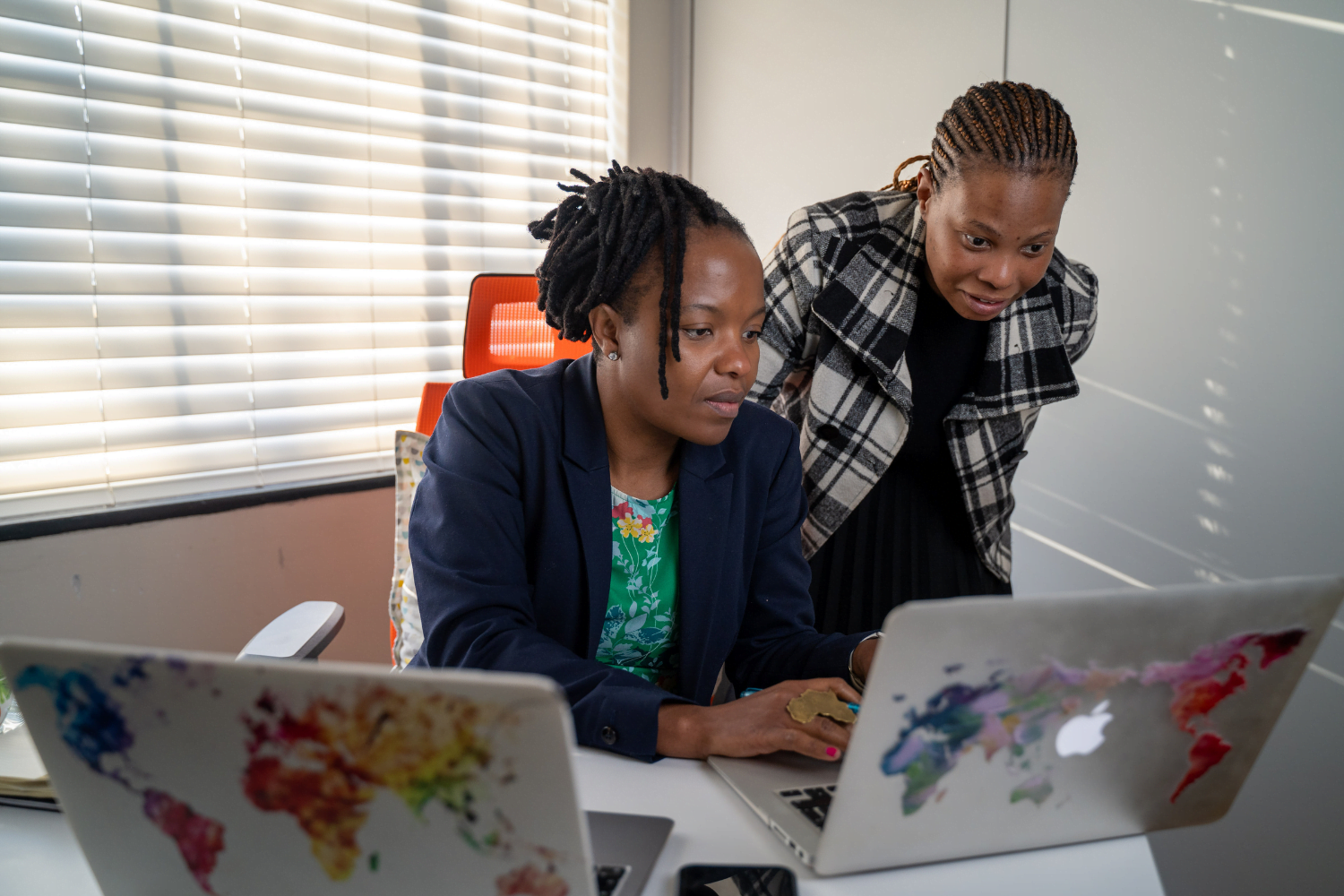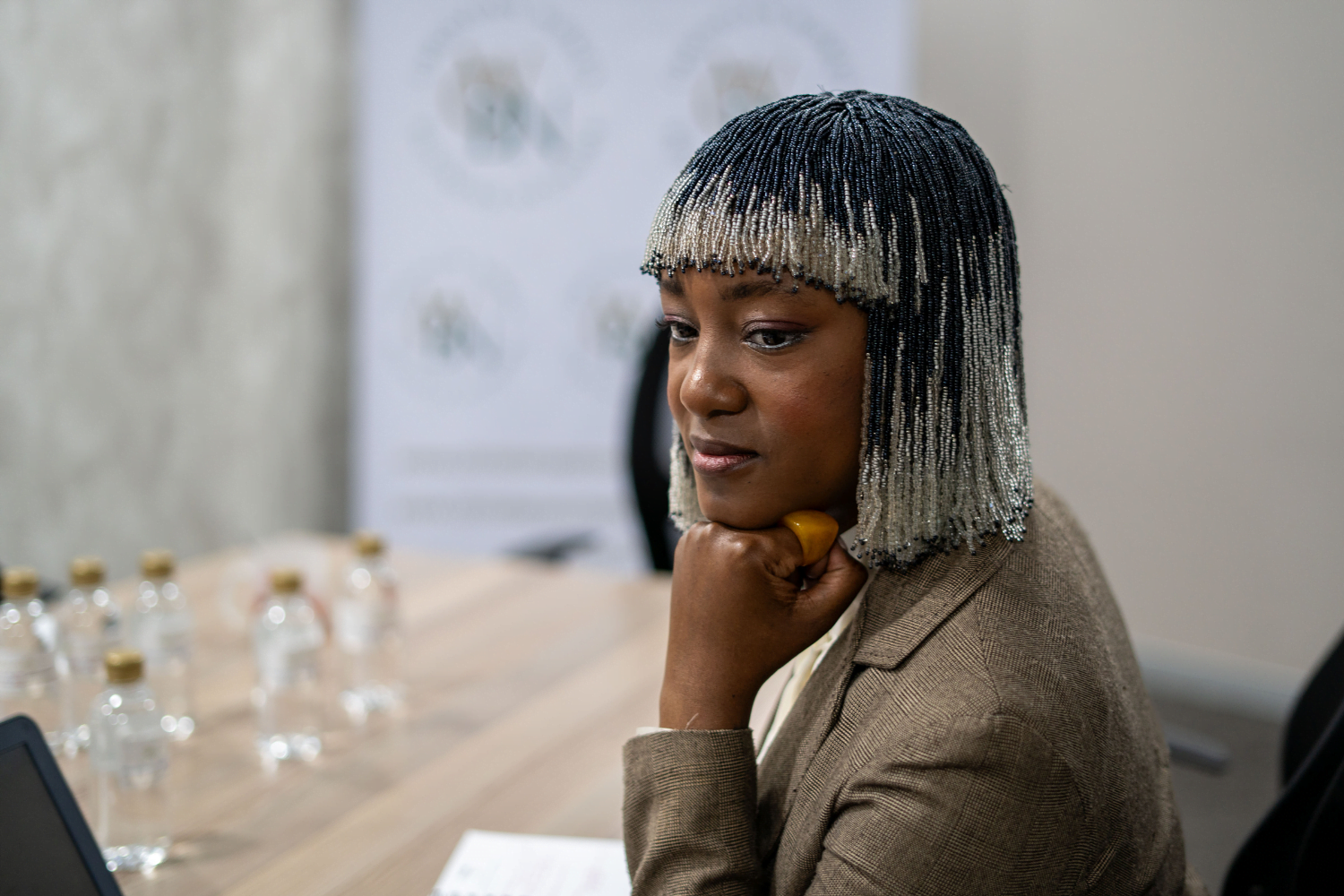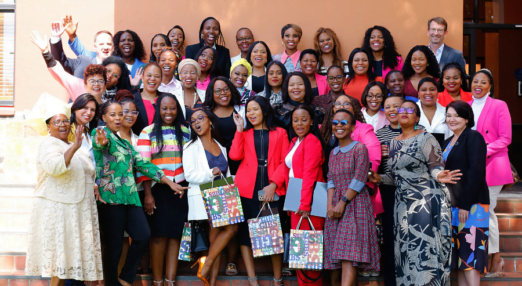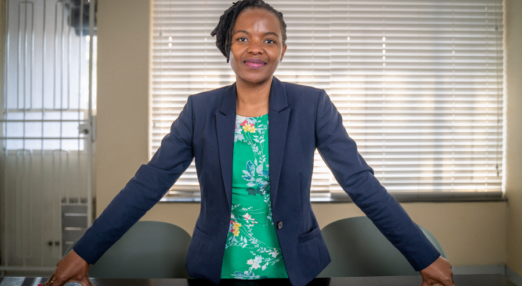Galvinising change at UNGA: Urgent actions to progress the SDGs
As the United Nations General Assembly kicks off, the SDGs are a key topic of conversation. Interim CEO, Peter Sargent, calls for stronger commitments to supporting women's entrepreneurship.

A key element of the Foundation’s work is pressing for change from decision-makers and business leaders so that women entrepreneurs are not held back. As the United Nations General Assembly (UNGA) kicks off and member states prepare to discuss progress on the Sustainable Development Goals (SDGs), our Interim CEO, Peter Sargent, calls for stronger commitments to supporting women’s entrepreneurship.
“We have now reached the halfway point of the SDGs, seventeen goals for creating a better world by 2030. Despite global efforts, only 15% of these goals are currently on track. This is an alarming wake-up call for all member states, who must now take bold action to achieve the goals by the agreed deadline.
Supporting women entrepreneurs is an essential component of achieving the SDGs – particularly goal 5, gender equality, and goal 8, decent work and economic growth, but with a catalytic effect on the other SDGs as well. As our Founder, Cherie Blair CBE KC, recently said: “When it comes to tackling the world’s biggest challenges, there is hardly an area that is not positively impacted when women can thrive as business owners.”

We know that financial independence is essential for women’s freedom and equality—and women being able to start, grow and sustain successful businesses is a core part of this. Women’s success in business not only benefits themselves and their families, but it also creates jobs and boosts economies. Plus, the money they make is more likely to be invested into education, healthcare and local economies. Ultimately, if we’re going to achieve our global goals, we cannot leave women entrepreneurs behind.
This is underlined by Ngozi Oyewole, Founder and MD of Noxie Limited, who participated in our Road to Growth programme in Nigeria. She said: “When you empower a woman, you empower a nation. If I am doing well, then everyone around me from my family to my community will be empowered, especially the women.”
Ultimately, if we’re going to achieve our global goals, we cannot leave women entrepreneurs behind.
I was pleased to see many of the issues facing women entrepreneurs, such as gender stereotypes and unequal division of unpaid care work, being highlighted in Progress on the Sustainable Development Goals: The gender snapshot 2023, a recent report produced by UN Women and UN DESA. The report provides an analysis of gender equality across all the SDGs and makes strong recommendations for governments and other stakeholders to accelerate progress.
One quote from the report stood out to me, “Challenging biased social norms and eliminating harmful practices is critical to the transformation that gender equality requires. Funding and multistakeholder partnerships must be in place. Governments, civil society organizations, businesses and international entities must work in partnership to tackle long-entrenched barriers.”

Our newly-launched Ready for Business strategy outlines our commitment to galvanising tangible change for one million women entrepreneurs by 2030, in line with the endpoint of the SDGs. We believe that every woman must have the choice, opportunity, environment and services so that she can start, grow and sustain a business on her own terms. We will do this by working with governments, the private sector, civil society, academia and, crucially, with women entrepreneurs themselves.
We believe that every woman must have the choice, opportunity, environment and services so that she can start, grow and sustain a business on her own terms.
We call on governments and policy makers to:
- Support women entrepreneurs to build resilience and thrive by adopting strong policy commitments, promoting women’s entrepreneurship, providing relevant social protections, and working to provide training and support directly to women through partnerships such as with the Foundation.
- Create a level playing field for women entrepreneurs, including ensuring women can formalise businesses, ensuring any state-led entrepreneurship products and services have at least 50% women as beneficiaries, and ensuring laws and policies in relation to entrepreneurship do not explicitly or implicitly discriminate against women entrepreneurs.
- Recognise, reduce and redistribute unpaid care work by ensuring national macroeconomic policies address the gender inequalities in unpaid care and other domestic responsibilities and that women’s contribution to unpaid care is measured and quantified.
- Address gender stereotypes that affect women’s entrepreneurship by taking concrete action to end gender stereotyping through training and awareness-raising and by showcasing and celebrating women entrepreneurs and their successes.
The clock is ticking. Without urgent intervention, it’s currently forecasted that 340 million women and girls will live in extreme poverty by 2030. We cannot let that happen. The world is being denied the incredible benefits that millions of women’s entrepreneurial potential could bring. Action must be taken now to support women’s economic justice and get back on track for achieving the SDGs.”
The clock is ticking. Without urgent intervention, it’s currently forecasted that 340 million women and girls will live in extreme poverty by 2030. We cannot let that happen.
Read more news...
-

We’re supporting 45,000 women across Sub-Saharan Africa with DHL Express
Through our renewed multi-year partnership with DHL Express, we'll expand our reach and deepen our impact.
Read more
-

Building confidence: A key to women’s business success
Confidence is crucial for women entrepreneurs' business journeys. Our Senior Manager - Evidence and Learning, Rachel Seftel, explains.
Read more
-

Announcing our new trustees
We are delighted to welcome Suzanne Ehlers, Francesca Nxedhlana and Winnie Wambugu to our Board of Trustees.
Read more
